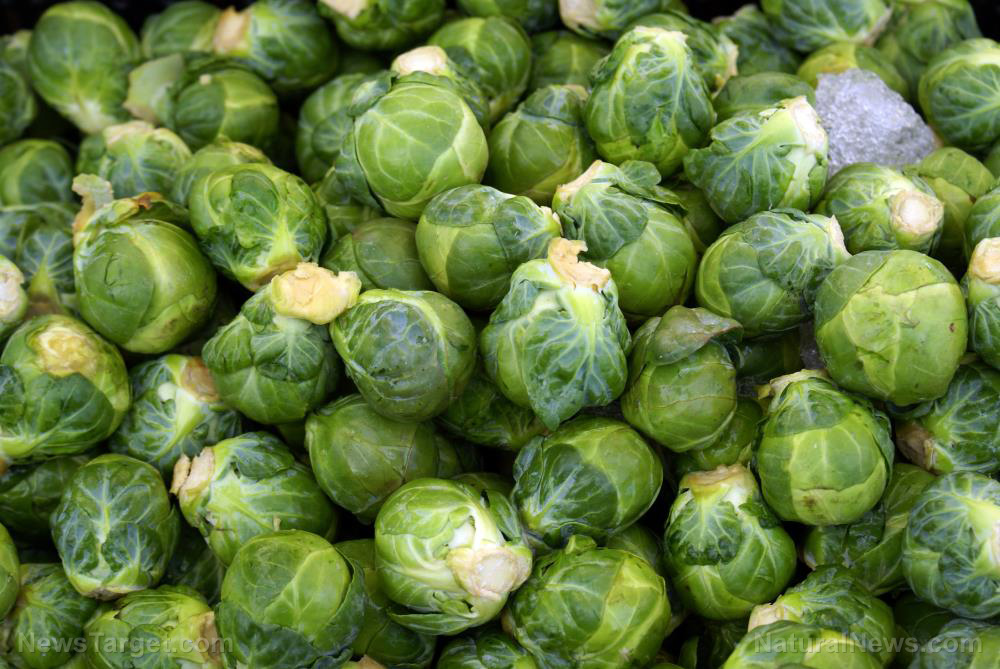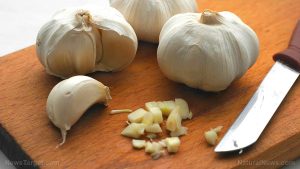
Advertisement
You may have heard Brussels sprouts described as a superfood, but do you know why they’re good for you?
According to several studies, Brussels sprouts should be part of your regular diet because this veggie is fiber-rich. It’s also a natural source of vitamins and minerals like vitamins C and K!
Health benefits of Brussels sprouts, an antioxidant-rich superfood
Brussels sprouts are hearty vegetables with a distinct nutty flavor. The vegetable is related to other greens like bok choy, broccoli, cabbage, cauliflower, collard greens and kale.
They are low-calorie, with less than 40 calories per one-cup serving. If you’re on a diet, consider eating Brussels sprouts because they’re also low-carb, with only eight grams of carbs grams per cup (raw). The same serving also offers three grams of fiber.
In addition, Brussels sprouts are also nutrient powerhouses since they contain various vitamins, minerals, antioxidants and plant protein. Here are seven reasons to incorporate Brussels sprouts are into a balanced diet.
Brussels sprouts are full of dietary fiber
A cup of cooked Brussels sprouts contains four grams of fiber.
Dietary fiber helps regulate your blood sugar levels and promotes digestive health. Consuming enough fiber also helps feed the “good” gut bacteria that is associated with a positive mood, immunity and anti-inflammatory activity.
Brussels sprouts are full of antioxidants
Brussels sprouts are antioxidant-rich superfoods. According to the results of one study, participants who consumed at least two cups of Brussels sprouts per day reduced damage at the cell level by at least 30 percent.

Brussels sprouts are rich in vitamin C
One cup of cooked Brussels sprouts offers more than 150 percent of your minimum daily recommended amount of vitamin C!
Vitamin C is an essential nutrient that acts as an antioxidant and promotes immunity health. In addition, it also boosts your eye health, iron absorption and is needed for collagen production.
Brussels sprouts are chock-full of vitamin K
A cup of cooked Brussels sprouts contains more than 250 percent of the recommended daily target for vitamin K. You need this vitamin for proper blood clotting.
Additionally, vitamin K is crucial for bone health. A balanced diet and can also help prevent bone loss.
Brussels sprouts can help fight certain diseases
Research suggests that compounds in Brussels sprouts are natural detoxifiers that can help deactivate potentially damaging chemicals or flush them out of your body more quickly.
Scientists have also discovered that sulfur compounds in Brussels sprouts can help reduce ulcer risk by limiting Helicobacter pylori (H. pylori) overgrowth and preventing bacteria from clinging to the stomach wall.
Brussels sprouts can help fight inflammation
The anti-inflammatory activity of Brussels sprouts can help lower your risk of developing chronic diseases like cancer and heart disease.
These anti-inflammatory compounds can protect cells from DNA damage. Compounds in Brussels sprouts can also fight aging and help manage inflammatory conditions like inflammatory bowel disease, obesity, rheumatoid arthritis and Type 2 diabetes.
In a study, researchers reported that female volunteers who consumed more cruciferous veggies had “lower levels of certain marketers of inflammation in their blood and urine.”
Brussels sprouts can help with blood sugar regulation
Research shows that an increased intake of cruciferous vegetables can help lower diabetes risk. Scientists hypothesize that this is because Brussels sprouts are rich in antioxidants and dietary fiber.
Fiber helps regular blood sugar and insulin levels while the antioxidant alpha-lipoic acid in Brussels sprouts is being studied for its “potential ability to help improve insulin function.”
Considerations before consuming Brussels sprouts
While veggies are generally food for you, Brussels sprouts may cause allergies or other negative side effects.
If you’re not used to eating Brussels sprouts, consult your physician to check for possible allergic interactions. If you have an intolerance to histamine-rich foods, you may experience allergy-like symptoms after eating Brussels sprouts.
You may also experience cross-reactivity if you have allergies to other foods like cabbage, mustard, or peaches.
Brassica vegetables or crucifers like Brussels sprouts can also cause gastrointestinal issues, especially if you consume them raw. Always cook Brussels sprouts to make them easier to digest.
Avoid Brussels sprouts if you are following a low- fermentable oligosaccharides, disaccharides, monosaccharides and polyols (FODMAP) diet to manage gastrointestinal symptoms.
Tasty Brussels sprouts recipes
These tasty recipes are sure to be a hit whether you serve them for breakfast, lunch, or dinner!

Garlic-parmesan roasted Brussels sprouts
This recipe pairs Brussels sprouts with pine nuts and other tasty veggies like carrots, parsnips and potatoes!
Ingredients for 6 servings:
- 2 pounds of Brussels sprouts, trimmed and halved (or quartered if large)
- 1/3 cup of Parmesan cheese, finely shredded
- 1/4 cup of extra-virgin olive oil
- 1/4 cup of toasted pine nuts
- 1 small lemon, sliced
- 4 cloves garlic, sliced
- 1 tablespoon of fresh thyme, chopped (Or 1 teaspoon dried thyme)
- 1/2 teaspoon of salt
- 1/4 teaspoon of ground pepper
Preparation:
- Position the racks in the upper and lower third of the oven and preheat to 425 F.
- Toss the Brussels sprouts, garlic, lemon, olive oil, thyme, salt and pepper in a large bowl. Divide the mixture between two large rimmed baking sheets and spread it in an even layer.
- Roast the Brussels sprouts without stirring for 10 minutes.
- Switch the pans from top to bottom and continue roasting without stirring. Let the Brussels sprouts cook until they are lightly browned and tender or for eight to 10 minutes more.
- Transfer to a serving dish and sprinkle with Parmesan and pine nuts before eating.

Roasted chicken with squash and Brussels sprouts
This recipe includes moist, roast chicken, Brussels sprouts and a delicious maple-mustard marinade!
Cook the large bone-in chicken breasts first so they’re perfectly cooked when the vegetables are done. This cut is juicy so it’s best to drain off the liquid from the pan before adding the vegetables so they caramelize evenly.
Acorn squash, butternut squash and Brussels sprouts taste best when roasted. To ensure an even roast, cut them into even pieces with a maximum surface area (halves or cubes) so they cook in direct heat.
Ingredients for 1 serving:
- 8 ounces (about 2 cups) of Brussels sprouts, trimmed and halved
- 4 (10-oz.) Bone-in, skin-on chicken breasts
- 4 cups (about 1 lb.) of butternut squash, cubed and peeled
- 1/2 acorn squash, seeded and cut crosswise into slices
- 3 large shallots, peeled and quartered
- 2 tablespoons of unsalted butter, melted
- 1 tablespoon of Dijon mustard
- 1 tablespoon of fresh sage, chopped and divided
- 1 tablespoon of olive oil
- 1 tablespoon of pure maple syrup
- 1 1/2 teaspoons of kosher salt, divided
- 1 teaspoon of freshly ground black pepper, divided
Preparation:
- Place a large rimmed baking sheet in the oven. Preheat the oven to 425 F and leave the pan in the oven as it preheats.
- Mix the mustard, sage and syrup in a small bowl. Brush the mixture evenly over the chicken breasts.
- Carefully remove the pan from the oven and add the chicken to the pan. Bake at 425 F for 20 minutes. Remove the pan from the oven and discard any juices.
- Add the acorn squash, Brussels sprouts, butternut squash and shallots to the chicken in the pan. Top the added vegetables with butter, olive oil, 3/4 teaspoon salt and 3/4 teaspoon pepper then toss.
- Spread the vegetables in an even layer around the chicken. Sprinkle the chicken with the remaining 3/4 teaspoon salt and the remaining 1/4 teaspoon pepper. Bake at 425 F for 20 minutes or until the chicken is done.
- Remove the bones from the chicken and discard them before serving.
Following a balanced diet doesn’t mean you have to prepare bland and boring meals. Eat more Brussels sprouts and try the above recipes to boost your fiber and antioxidant intake!
Sources:
Advertisements







